Innovation in Focus: Tools in Space
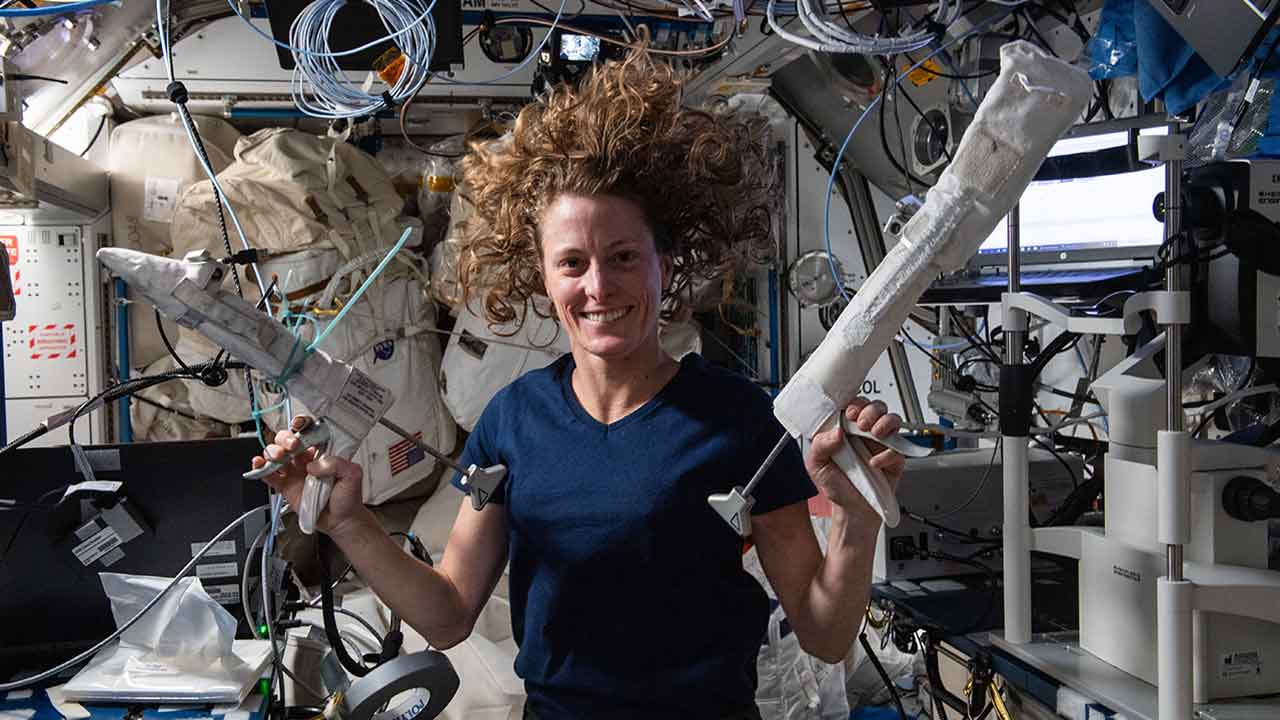
NASA astronaut Loral O'Hara shows off grease guns used during a spacewalk at the ISS.
Media Credit: NASA
March 11, 2025 • By Kris Rainey, Staff Writer
We all have tools, right? Tiny screwdrivers to fix your glasses, a wrench to tighten a leaky faucet, or a roll of tape to hold something small in place. Whether they’re stashed in the garage or basement, a cool toolbox, or even a kitchen drawer, tools are never where you think they are when you need them! On Earth, we depend on tools to fix items we use every day. Tools in space do the same thing, as these images demonstrate. From the early Moon missions to today’s high-tech era, let’s look at some of the tools in a space toolbox.
In The Beginning
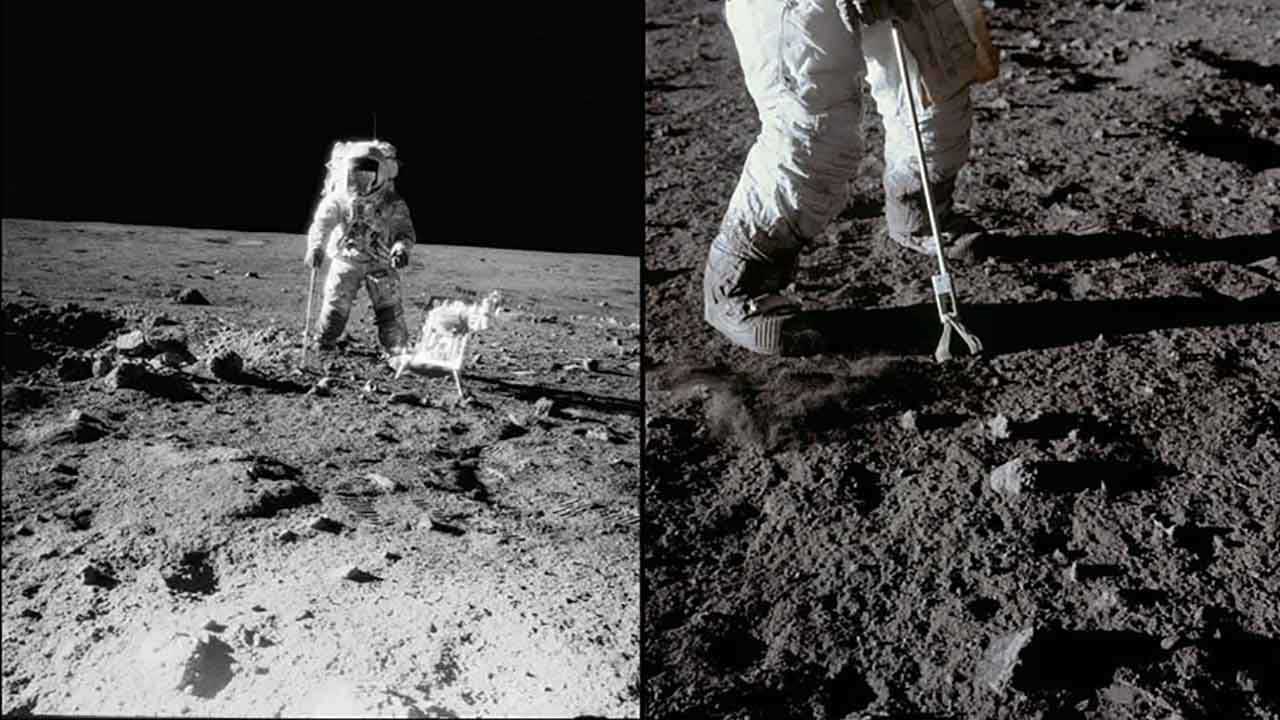
Media Credit: NASANational Aeronautics and Space Administration
In this image from 1969, the Apollo 12 crew is using the Apollo Lunar Hand Tool (or ALHT) on the surface of the moon during the extravehicular activity. This simple but effective tool helped gather various samples for analysis on Earth—including 70 pounds of rocks and dirt.
Just as the tools we used back then have evolved to meet the needs of the next generation of exploration and discovery, the space community is ready to “change history and the way humans live in the future.” Read more in the International Space Station (ISSInternational Space Station) National Lab’s Forging the Path series.
Plant Safety in Space
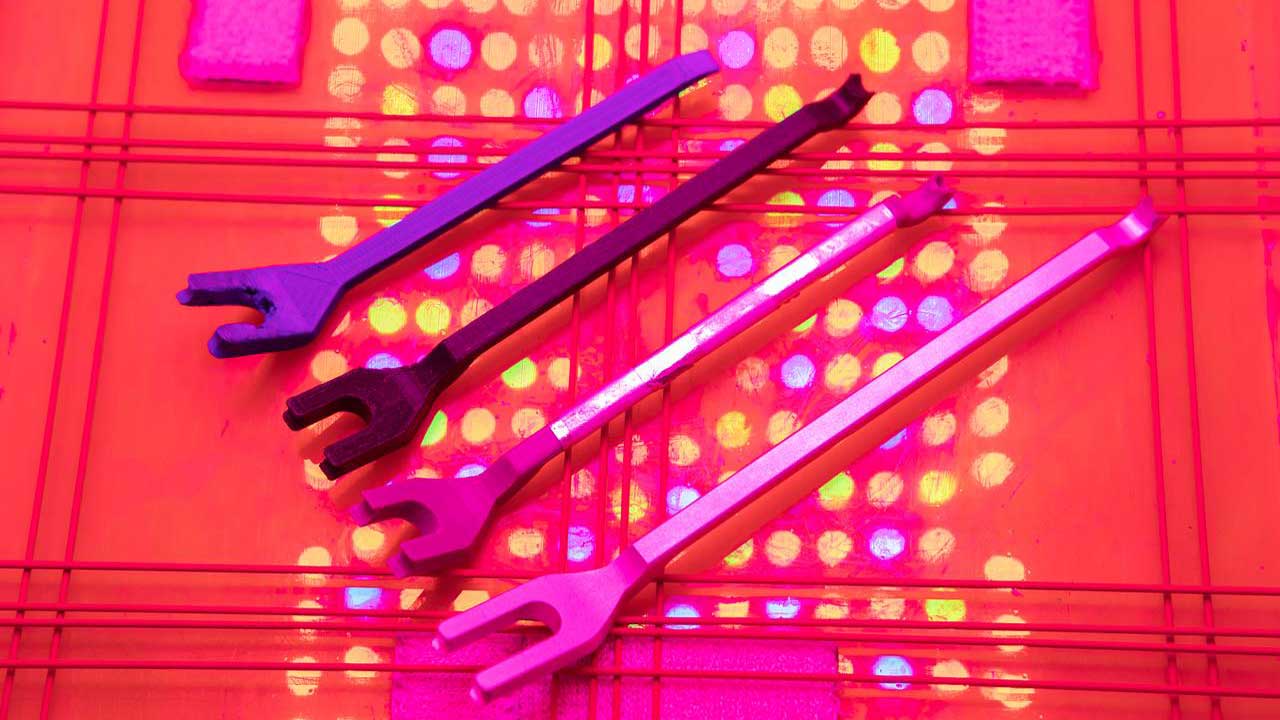
Media Credit: NASA
We all know that using bungee cords can be challenging! This bungee tool advanced from a simple 3D printed design (top) to a more efficient adaptation that helps astronauts save time when working with plants onboard the orbiting lab. Why grow plants in space? This investigation provides some answers.
Just Like Your Tool Kit at Home
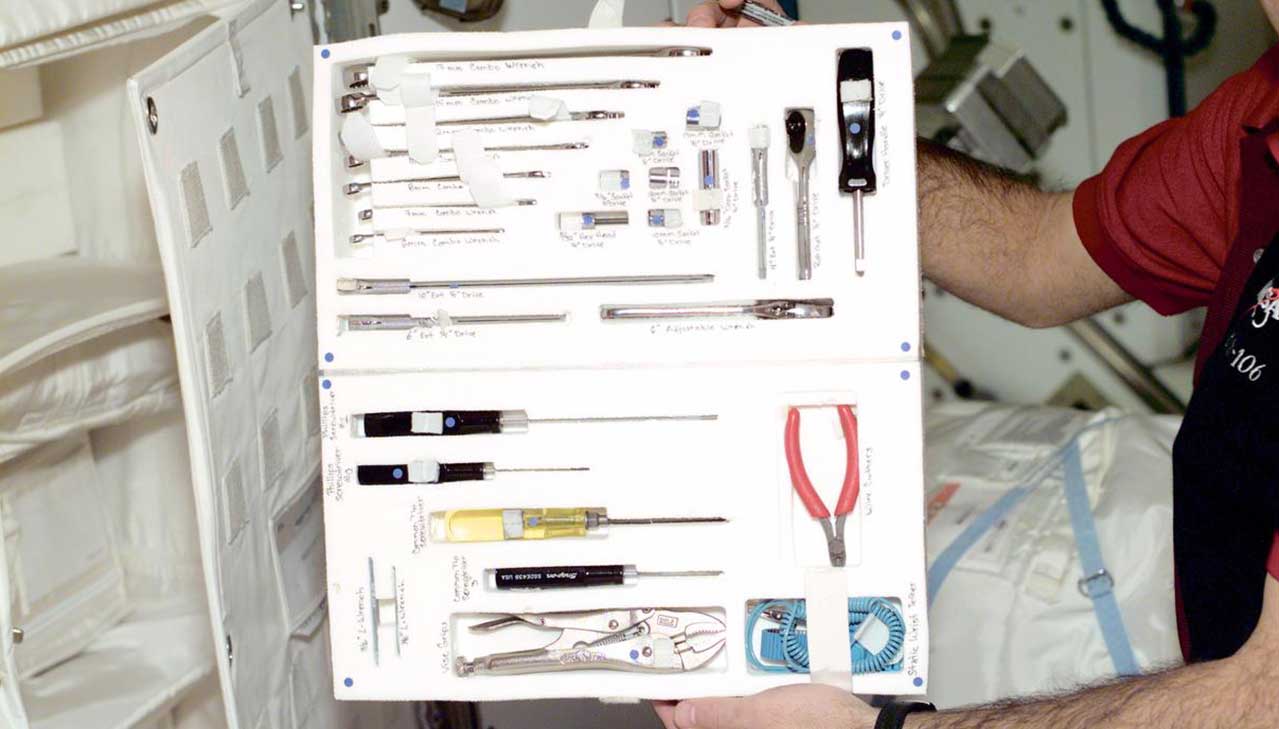
Media Credit: NASA
Back in 2000, NASA astronaut Richard Mastracchio showed off a standard tool kit that contained lots of tools you may have at home right now. STS-106 launched to the ISS onboard Space Shuttle Atlantis on September 8, 2000, with a mission to prepare the orbiting lab for continuous human presence later that year. Learn more about the history of the ISS in this timeline.
Cosmic Catch
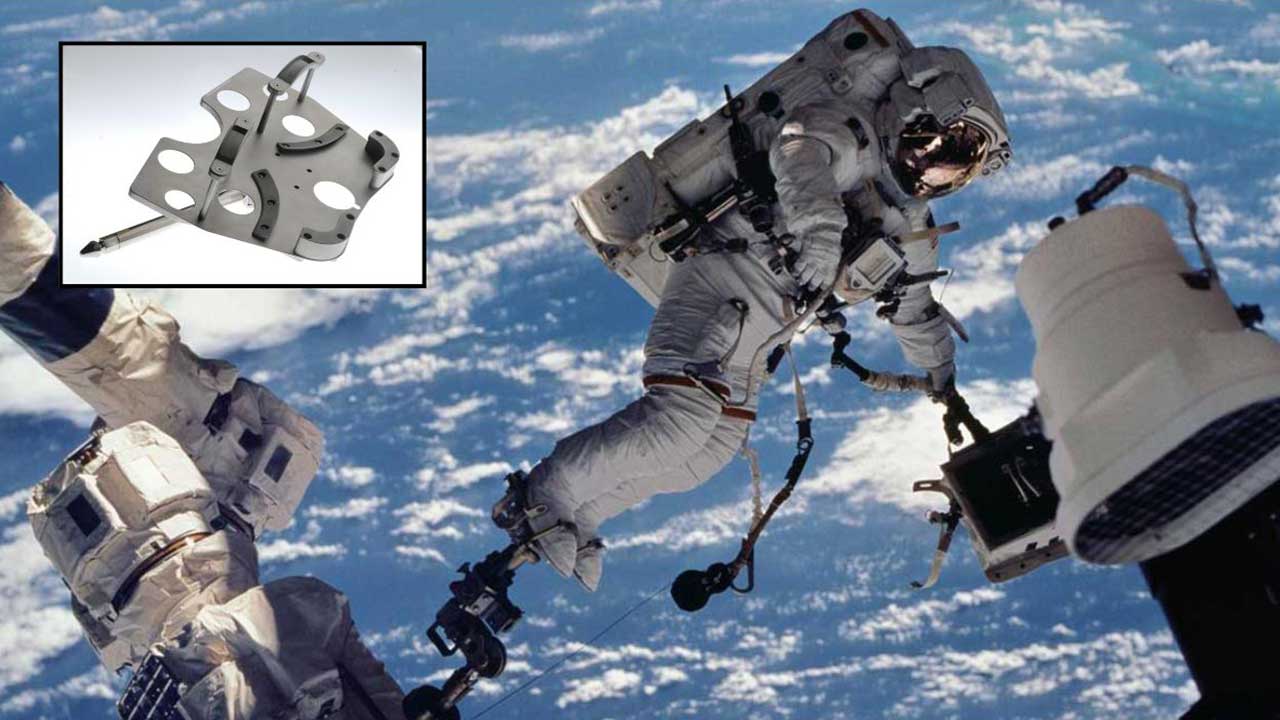
Media Credit: NASA
Here’s a tool that you won’t need on Earth, given our planet’s gravitational force. The “Manipulator Foot Restraint” secures astronauts’ boots to the Canadian Space Agency’s robotic arm, a.k.a. “Canadarm.” Originally designed to assist during assembly of the orbiting lab, Canadarm performs critical tasks for the orbiting lab, including moving astronauts and supplies around during spacewalks and even helping with the “cosmic catch” when they need to reenter the spacecraft.
Interested in learning which astronauts are heading to the space station next? Check out missions and launches for details on upcoming launches carrying ISS National Lab-sponsored research.
One Tool Instead of Many
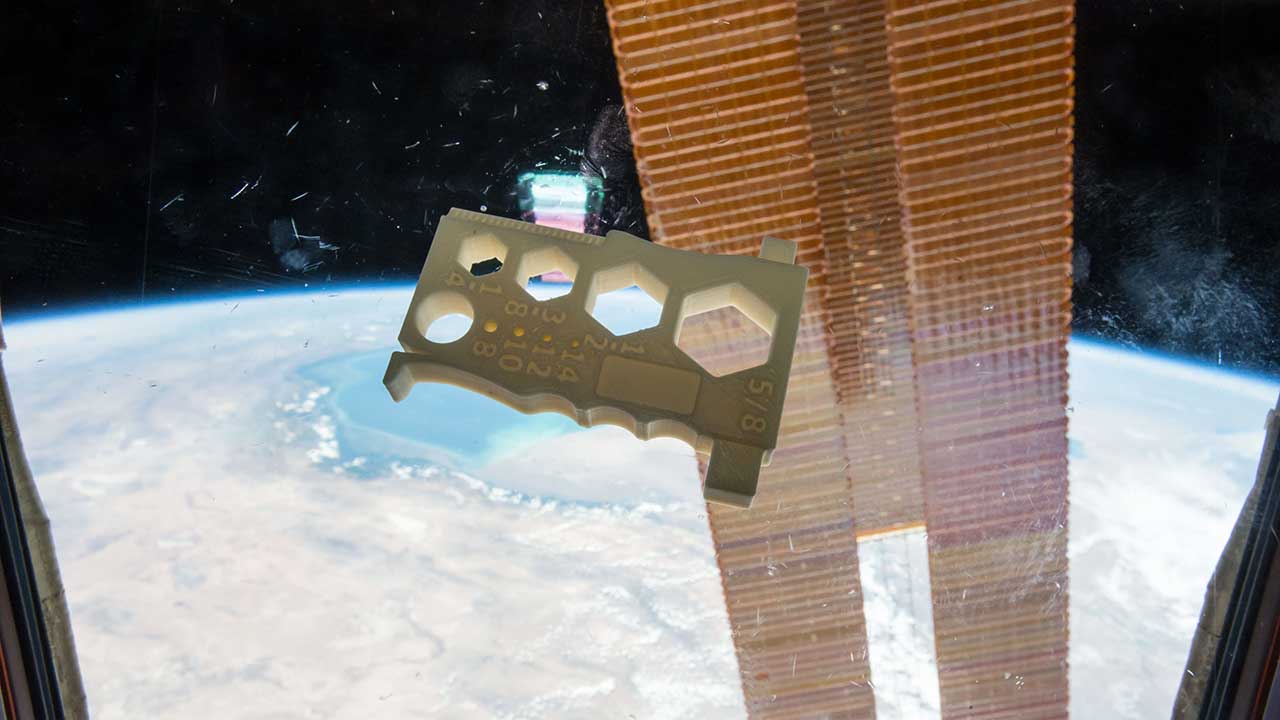
Media Credit: NASA
The Multi-Purpose Precision Maintenance Tool won a design award during the 2014 Future Engineers Space Tool Challenge. This handy tool helps an astronaut complete many tasks without having to carry multiple tools. Learn how it was 3D printed approximately 250 miles above Earth.
Space-Age Power Tools
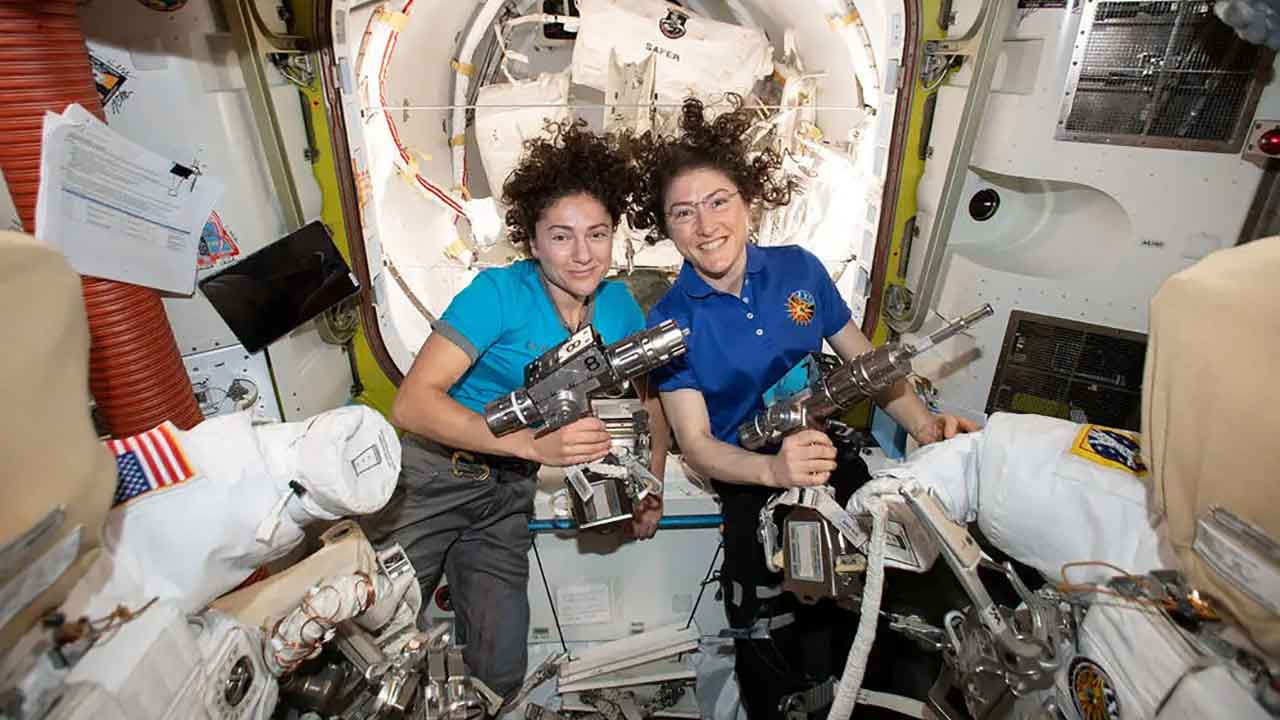
Media Credit: NASA
During their historic spacewalk, NASA astronauts Jessica Meir and Christina Koch used these “pistol grip” power tools to perform necessary repairs outside the ISS. Pistol grip tools (or PGT) were originally designed to service the Hubble Space Telescope by a program engineer who eventually became an astronaut and used a PGT during a spacewalk.
A Place For Everything, and Everything in Its Place
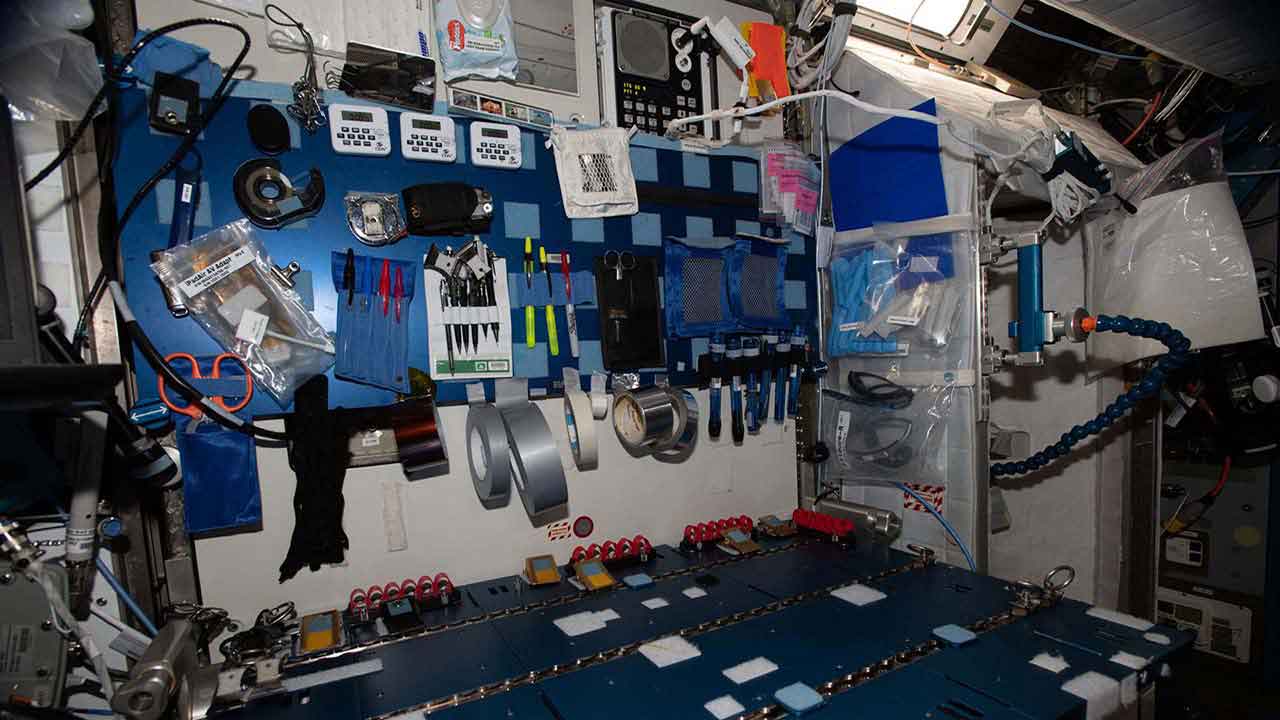
Media Credit: NASA
Have you ever misplaced a tool? It can be frustrating to search for what you need in the middle of a project. When working in a microgravityThe condition of perceived weightlessness created when an object is in free fall, for example when an object is in orbital motion. Microgravity alters many observable phenomena within the physical and life sciences, allowing scientists to study things in ways not possible on Earth. The International Space Station provides access to a persistent microgravity environment. environment, storing and keeping track of tools, supplies, and equipment is critical. The ISS’s Maintenance Work Area (MWA) helps astronauts keep their tools organized and easy to find. It also keeps tools from floating away.
The ISS National Lab provides tools to help research applicants prepare and submit their concept summaries and proposals. View the applicant resources.
What’s In Your Toolbox?
Watch as NASA astronaut Matthew Dominick slides in to take us on a virtual tour of the ISS toolbox.